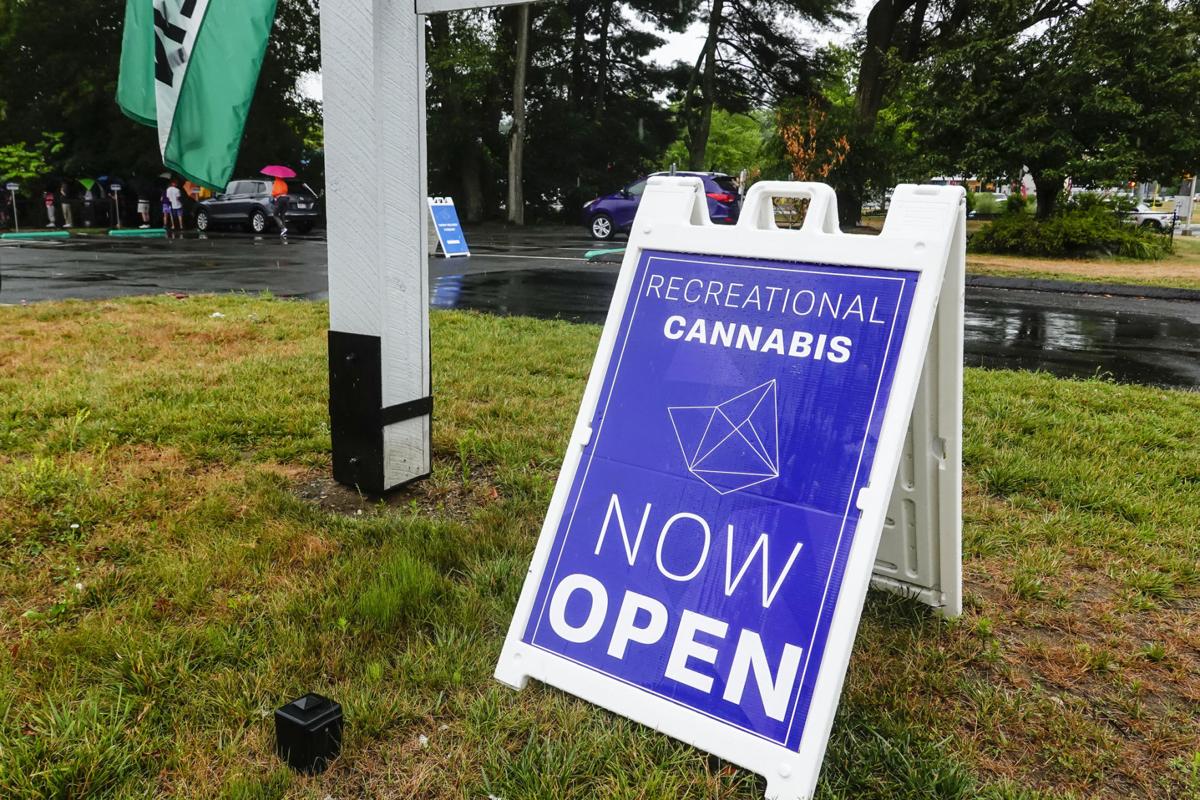Municipalities in the Cayuga County area are weighing the pros and cons of opting out of parts of New York state's law legalizing marijuana.
The Marijuana Regulation and Taxation Act, signed by Gov. Andrew Cuomo March 31, legalizes possession of up to 3 ounces of the drug, and public and private use of it, by New Yorkers 21 and older.
Municipalities cannot opt out of that part of the law, which has already taken effect. However, the law allows them to opt out of letting cannabis retail dispensaries open, or on-site consumption licenses be issued, within their limits. Municipalities that decide to opt out must pass a local law by Dec. 31. Retail marijuana sales in New York state are slated to begin on April 1, 2022.
People are also reading…
Though municipalities have about nine months to make their decisions, several in the Cayuga County area are already preparing to do so.
This week, Ë®ąűĹÉAV reached out to the elected leaders of more than 15 municipalities in the area. Those that responded indicated that their legislative bodies will discuss opting out soon, including the city of Auburn and the village of Skaneateles. Their respective mayors, Michael Quill and Mary Sennett, otherwise declined comment because those discussions haven't begun yet.
The leaders of two major Cayuga County law enforcement agencies do not support the legalization of marijuana in New York state.
Two other Cayuga County mayors, Bonnie Apgar Bennett in the village of Aurora and Tom Winslow in the village of Weedsport, shared some thoughts on opting out, and the new marijuana law in general, with Ë®ąűĹÉAV. For both mayors, the discussion of allowing retail sales and on-site consumption comes down to economic rewards versus public safety risks.Â
Under the law, municipalities will receive 75% of the local tax revenue generated by retail marijuana sales, with the remaining 25% going to the county. The Association of Towns of the State of New York the size of the share for municipalities, and its legislative director, Sarah Brancatella, told Ë®ąűĹÉAV that they should keep that revenue in mind as they make their decisions.
"However, every town in New York is unique and has its own sense of community, and ultimately towns will act in a way they feel is best for their residents," Brancatella continued. "If towns want to get a better sense of how their residents feel about cannabis dispensaries or on-site consumption sites we've recommended that the town hold a public hearing or a series of community roundtables."
Brancatella also noted that town decisions about opting out will not apply to any villages within their limits. So Aurora and Weedsport will make their own decisions regardless of Ledyard and Brutus.
That was one of the questions Bennett and Winslow had as they prepared to discuss their villages opting out.
They had more rhetorical questions, too. Bennett, for instance, wondered if it would be better for her village to have a dispensary for its residents, Wells College students, Inns of Aurora visitors and more. That might help keep people under the influence of marijuana off the road, which she said is one of her biggest concerns — especially considering the amount of teenagers who rely on driving in a rural area like hers. But at the same time, Bennett could see how not having a dispensary in the village might decrease the temptation of the drug.
Those questions, not money, will be on Bennett's mind as Aurora decides whether to opt out.
"I don't think it's a decision that ought to be made on revenue. It feels like much more of a safety issue to me than any revenue we would get," she said. "You have to think about the consequences."
In Weedsport, Winslow described a similar dilemma. He feels certain someone will try to open a dispensary in the village given its name, he said with a laugh, so he wants to make the right decision.
Both he and Bennett said the decision-making process will also involve seeing what other municipalities in the Cayuga County area do. That will help tell them not only what their own constituents may want, but how much revenue they stand to collect. A municipality surrounded by others that have opted out might see more incentive not to do so, and vice versa.
As his village prepares to make its decision, Winslow added that he's consulting with the New York State Conference of Mayors and Municipal Officials. The association said in a statement that it believes "each community must have a voice in whether the adult-use cannabis industry operates within its boundaries, as the impacts of the cannabis industry will be most directly felt at the local level."
Lake Life Editor David Wilcox can be reached at (315) 282-2245 or david.wilcox@lee.net. Follow him on Twitter .



















